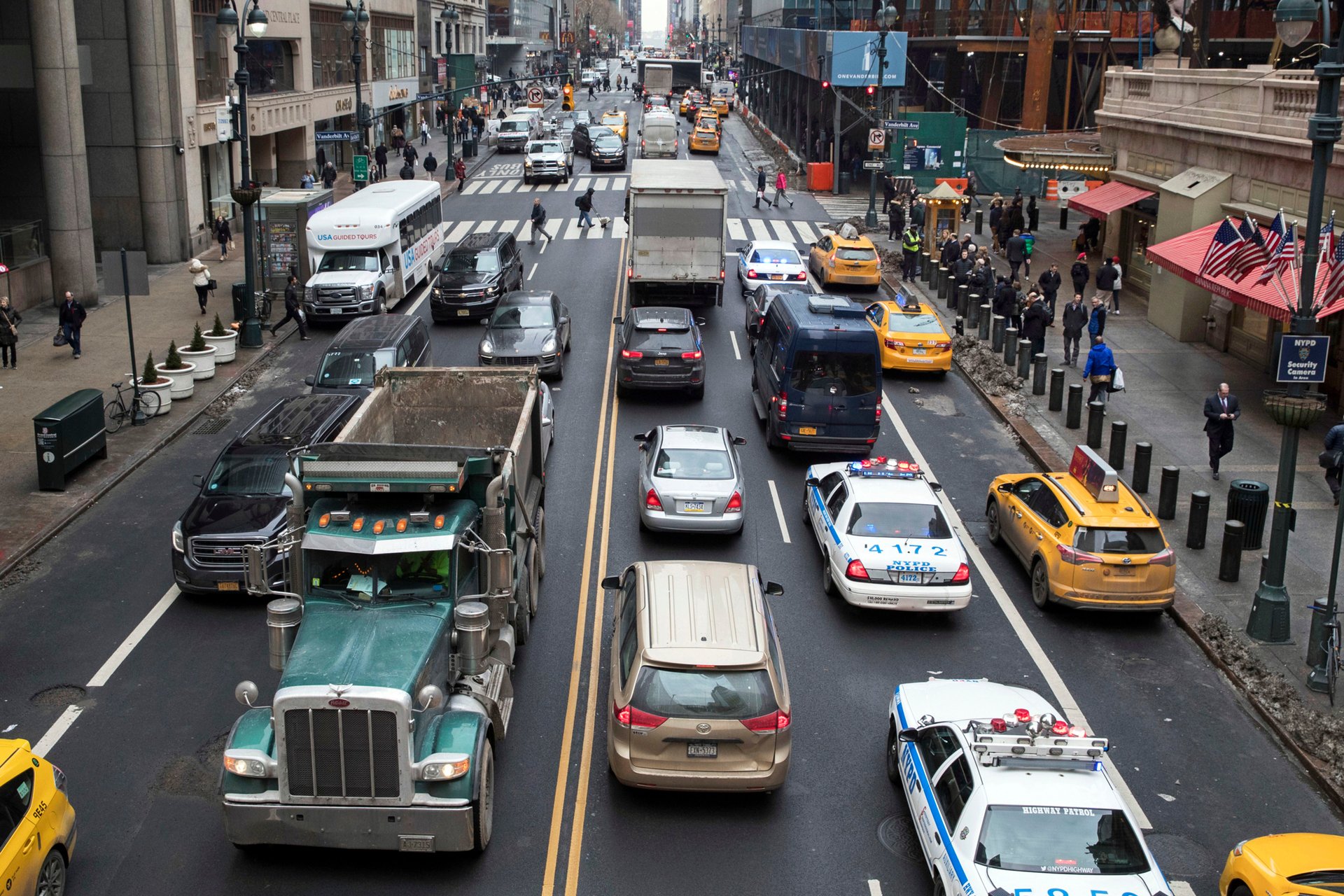Drivers would pay $15 to enter busiest part of NYC under plan to raise funds for mass transit
Most drivers would pay $15 to enter Manhattan’s central business district under a plan released by New York officials

NEW YORK (AP) — Most drivers would pay $15 to enter Manhattan’s central business district under a plan released by New York officials Thursday. The congestion pricing plan, which neighboring New Jersey has filed a lawsuit over, will be the first such program in the United States if it is approved by transportation officials early next year.
Suggested Reading
Under the plan, passenger car drivers entering Manhattan south of 60th Street during daytime hours would be charged $15 electronically, while the fee for small trucks would be $24 and large trucks would be charged $36.
Related Content
Cities such as London and Stockholm have similar programs in place, but New York City is poised to become the first in the U.S.
Revenue from the tolls, projected to be roughly $1 billion annually, would be used to finance borrowing to upgrade the city’s mass transit systems.
The proposal from the Traffic Mobility Review Board, a New York state body charged with advising the Metropolitan Transportation Authority on the tolls, includes discounts for travel between 9 p.m. and 5 a.m. and for frequent low-income drivers. Government vehicles such as municipal garbage trucks would be exempt.
Taxi drivers would pass a $1.25 surcharge onto their passengers for entering the congestion zone, while app-based ride-hail passengers would see a $2.50 surcharge.
Officials say that in addition to funding needed transit improvements, congestion pricing will result in improved air quality and reduced traffic.
“Absent this we’re going to choking in our own traffic for a long time to come and the MTA is not going to have the funds necessary to provide quality service,” Carl Weisbrod, chair of the traffic review board, said in presenting the report to MTA officials.
Opponents include taxi drivers, who had pushed for a full exemption.
“The city has already decimated the taxi industry with years of unregulated, unchecked competition from Uber and Lyft, and the MTA seems poised to land a final blow to the prospect of stability and modest survival," Bhairavi Desai, executive director of the New York City Taxi Workers Alliance, said in a news release. “If this proposal is implemented, thousands of driver families will get dragged back into crisis-level poverty with no relief in sight.”
New Jersey Gov. Phil Murphy criticized the traffic mobility board's proposal after some news organizations reported on it Wednesday ahead of its official release.
“The Traffic Mobility Review Board’s recommended credit structure is wholly inadequate, especially the total lack of toll credits for the George Washington Bridge, which will lead to toll shopping, increased congestion in underserved communities, and excessive tolling at New Jersey crossings into Manhattan," Murphy, who filed a federal lawsuit over congestion pricing in July, said in a statement.
The MTA board will vote on the plan after a series of public hearings scheduled for February 2024.